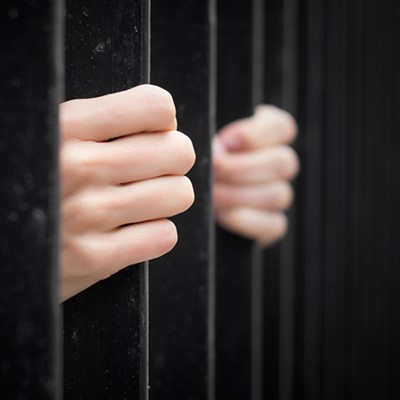As a social worker for several years, I worked with female inmates in Arizona and witnessed their abuse and harassment at the hands of individuals, the penal system and this state.
Arizona is infamous for its prison system. Recidivism rates tell the story: The rate at which females return to prison is a staggering 89 percent! Inmates I worked with told me that when women are paroled on a Friday, guards often say, "See you Monday!" A Canadian friend of mine who is both a law professor and a judge uses Arizona as an example of a penal system that has failed.
Taxpayers expect offenders to pay for their crimes. But at what point does correction become abuse? When inmates are merely warehoused and not offered programs that teach life changes, are moved from state to state because of overcrowding (and thus not able to see their children) and are victimized by young guards, that's abuse!
Amnesty International's handbook, Not Part of My Sentence, says that many states' women's prisons are in violation of human rights. A former student of mine--currently serving a life sentence--reports that male guards at the Arizona State Prison for Women continue to walk through inmates' shower areas and look through windows into toilet stalls while they are in use
Prisoner abuse by guards is an old story. It's public knowledge that Arizona is involved in a backlog of lawsuits filed by female inmates reporting sexual abuse at the hands of on-duty guards--incidents ranging from public masturbation to rape. Women complain that strip searches often become excuses for groping sessions and that guards give special treatment to female inmates who "cooperate."
But abuse of inmates isn't limited to guards and sex. The state issues its own form of abuse by funding less-than-adequate programs for drug rehabilitation. When I asked a prison orientation officer about rehabilitation for women inmates, he chuckled and said, "re-habilitation? Lady, these gals aren't habilitated when they get here. How are we supposed to re-habilitate them?"
Among those who know prisons, it is agreed that private prisons are not the answer. Private systems that incarcerate women (and men) arrested for drugs and other nonviolent crimes may well provide a "out of the frying pan, into the fire" situation. With little or no public oversight, private investors can wield their power as they see fit.
With twice as many women than men suffering from serious depression, mentally ill prisoners are victims of specialized abuse. Most are incarcerated for "self medicating" on illegal drugs. They are only allowed to visit prison psychiatrists as infrequently as every four months--big trouble for those whose meds need frequent adjusting, and whose addiction could be better addressed by the medical community.
Prisons in Arizona and across the country were not constructed with women in mind, yet more and more women are being incarcerated. The Bureau of Justice Statistics states that between 1990 and 2000, the number of male prisoners grew by 77 percent while the number of female prisoners increased by 108 percent. Female prisoners often do contracted piece work--jobs that involve sewing elastic on pajamas or digging ditches for surveillance cable--instead of getting the marketable skill training opportunities provided to male prisoners. And they are often housed in inhumane conditions--as recently as six years ago, Manzanita prison housed six women in one cell. As I walked past the commissary, I frequently saw boxes being delivered that were clearly marked "unfit for public consumption."
It's easy to wind up in prison. Ask the young woman caught with marijuana in her purse. Ask the addict who helped her boyfriend manufacture crystal meth so they could support their habits. Ask them how they got themselves into such a downward spiral, and they'll tell you stories of bad choices and of a society that failed them, of family and drug rehab programs whose funds were cut.
Recently, Dora Schriro was appointed the new director of the Arizona Department of Corrections. Her initial efforts--such as the institution of a no-tolerance policy when dealing with guards who abuse female inmates--indicate she will be a force to be reckoned with by those who resist change. If the Arizona Legislature cooperates with Schriro's plans, prisons that house female offenders in Arizona will cease to be institutions of abuse.










